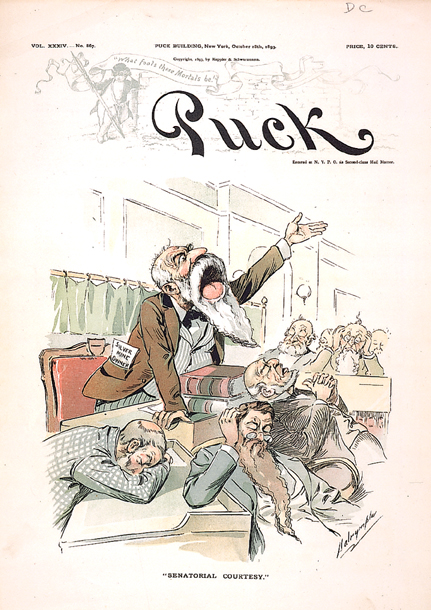
| Title | "Senatorial Courtesy." |
| Artist/Maker | Unidentified |
| Date | 1893-10-18 |
| Medium | Lithograph, colored |
| Dimensions | h. 9.00 x w. 8.00 in. (h. 22.86 x w. 20.32 cm) |
| Credit Line | U.S. Senate Collection |
| Accession Number | 38.00652.001 |
Technically, "senatorial courtesy" refers to a tacit agreement among senators not to vote for any presidential nominee who is opposed by the senators from the nominee’s home state. In this cartoon that ran in Puck on October 18, 1893, cartoonist Louis Dalrymple expanded the term to include the willingness of senators to indulge long-winded colleagues. During the 19th century, the Senate had no cloture rule and therefore no means to cut off senators who wished to delay or kill a bill by talking it to death, better known as a filibuster. In this instance, William M. Stewart, a Republican senator from Nevada representing the silver mine owners, filibusters against repeal of the Sherman Silver Purchase Act. With a pile of reference books before him, the senator orates to a Chamber filled with sleeping legislators.